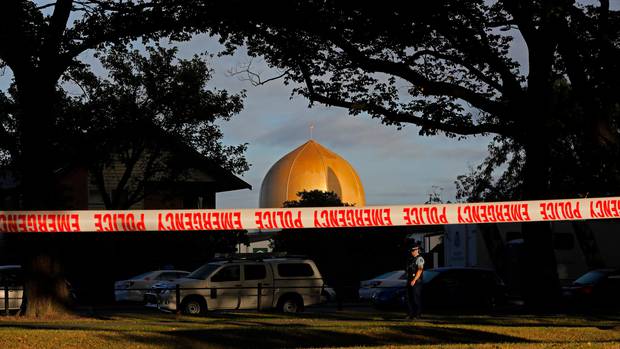Police appear to be paying close attention to “false flag” conspiracy theorists spreading bogus narratives about the Christchurch mosque shootings.
One Auckland man, who described the March 15 terror attack as a “state-sponsored false flag”, said he had been visited by officers five times since the attack happened.
The man, who described himself as a journalist and online talk show host, said he was no threat.
But a professor of psychology said people spreading “counter-official” narratives could encourage others to violence.
Victoria University professor of psychology Marc Wilson, who has studied conspiracy theories, said there appeared to have been an increase in the popularity and reach of conspiracy theories worldwide since 9/11. The internet made it much easier for people to share theories and find “like-minded” people.
Following the Christchurch terror attack in which 51 people died, conspiracy theories included several claiming the attack was a hoax, or a “false flag” event.
The phrase – which originated in maritime circles when a ship disguised itself with a fake ensign – has become a term used by conspiracy theorists to label events they believe have been faked.

The online talk show host, who Stuff has chosen not to name, said he believed the Christchurch shootings were state-sponsored. “Which state or states at this point were involved remains unclear,” he said.
The man said he could “only hope” he was on a watch list of more than 100 people police have been monitoring since the attack.
The list, which has been seen by Stuff, was created as part of Operation Whakahaumanu and includes white supremacists, Muslim converts and “disaffected” people with firearm licences. Some of the people have come to police attention due to social media posts. Stuff has chosen not to name anyone on the list or contact them for security reasons.
The man said he first received a call from police asking what time his flight to Christchurch was, shortly after he said on his show that he planned to visit the city.
The man claimed police then visited him four times over the next four days before he went to Christchurch where he hoped to interview survivors and witnesses of the attacks, and to film at the Deans Ave mosque.
After returning home police visited him again and asked him how he felt about Christchurch and the purpose behind his visit.
“[I said] I’m trying to show compassion and respect for the victims and try and counter the alternative media narrative that there were no victims and that it was a hoax.”
After the five visits the man was still unsure exactly why police wanted to speak to him. He said he did not have a firearm licence and had never implicitly nor explicitly made any threats.
“Some people might perceive me as a threat … but in terms of actually trying to threaten people, no.”

Police declined to comment on whether they were investigating or monitoring the man.
Wilson was wary of “second-guessing” police motivations or speculating about individuals.
“The Christchurch atrocity was unprecedented for a variety of reasons and I would not be at all surprised if the police were throwing the net wider than they usually would.
“It makes sense to be overly conservative and investigate people who might not usually hit the radar … it’s better to investigate someone and dismiss them than to miss an active threat.”
Wilson said it would be “naive” for someone to claim that because they were not personally a threat, they were not potentially contributing to a “heightened threat scenario”.
“I think that mouthpieces need to reflect on the contribution that spreading counter-official narratives can make to encouraging others, and others who might not be so un-threatening.”
Conspiracy theorist claims police have visited him five times after Christchurch terror attack

